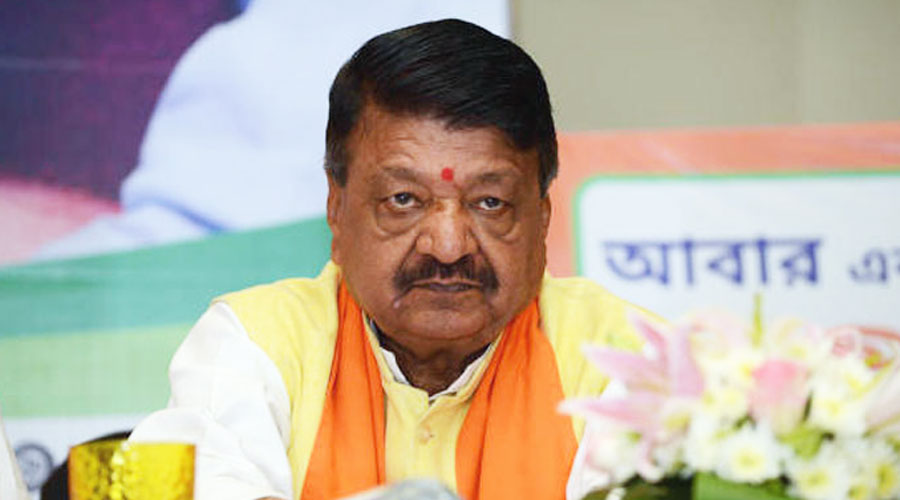After the defeat in Bengal, some state BJP leaders are blaming the party’s policy to field “bohiragwato (outsiders)” to handle the elections in the state, along with “continuous interference” by the national leaders.
Senior state BJP leaders said apart from their failure to polarise Hindu voters and convince women voters, those who came from other states to manage the poll machinery in each constituency contributed to the BJP’s rejection.
Chief minister Mamata Banerjee understood the issue of the outsiders and alerted the people of Bengal in each of her campaign rallies, they said.
“People did not consider our Prime Minister Narendra Modi or Union home minister Amit Shah to be outsiders. But they felt hundreds of unknown Hindi-speaking people who were fielded to manage the polls as outsiders,” a BJP state committee member said.
“In the last three phases when Mamata started campaigning against BJP’s outsiders and accused them of spreading Covid-19, it struck a chord with the people,” he added.
BJP leaders said had state leaders handled the campaign, the party would have done much better and the 2019 Lok Sabha leads in 121 Assembly segments could have been converted into seats.
Party sources said hundreds of leaders and workers of both the BJP and the RSS were brought from places like Uttar Pradesh, Gujarat, Madhya Pradesh, Jharkhand and Odisha to work as poll managers. A team of five to ten such outsiders were fielded for each constituency of Bengal to guide local leaders in the outreach programmes in villages on how to promote the agenda of polarisation.
“Those people from other states became the leaders of the local leaders. These outsiders were unaware of local culture, ethics and livelihood of the people of Bengal but held meetings in villages to push the BJP’s agenda. Language was a major issue as these leaders could not speak or understand Bengali properly,” said a senior BJP leader.
Several BJP leaders in districts like Jhargram, Birbhum and Hooghly admitted the outsiders did not allow local leaders to push issues they felt were close to the people.
“They were predetermined on polarisation...They forced us to campaign for polarisation and how Hindu voters will be benefited if BJP came to power. Here, there are many pockets where Hindus and Muslims live peacefully and both participate in festivals of each other. The people of those areas rejected us,” said a BJP leader in Birbhum.
Multiple leaders The Telegraph spoke to blamed the leaders that the saffron camp parachuted from Delhi and other parts of India. Two leaders against whom there was immense rage were the party’s national general secretary and minder for Bengal Kailash Vijayvargiya and its IT cell chief and co-minder for the state Amit Malaviya.
Party sources held Vijayvargiya guilty of opening floodgates to turncoats and Malaviya for intervening in every minute detail. Malaviya’s attitude to have his way in everything didn’t allow him to take suggestions from workers of the state. He defied state BJP chief Dilip Ghosh at times, said insiders.
“Kailashji had a no-bar policy when it came to inducting turncoats into the party. He would not do background checks,” said a state secretary of BJP. Apparently, Vijayvargiya played a key role in selecting candidates for most of the 294 seats, and most of his picks lost.
Party old-timers were furious over candidates in many seats. The discontents led to days of protests. State leaders met these agitators and the matter was pushed under the carpet. But the final results have a different story to tell.
Several old BJP workers told this paper that results indicated sabotage. “Our honest workers felt cheated when the Trinamul leaders were brought to the party and given tickets. Their votes clearly didn’t go to the BJP,” a BJP source said.
Sources said Malaviya was so confident about BJP’s win that he even interfered with the food menu prepared for journalists and party workers present at BJP’s election office on Sunday. He insisted on keeping only vegetarian food. When some state leaders tried to reason with him that it was the traditional to eat non-vegetarian food on special occasions in Bengal, he shrugged them off.











